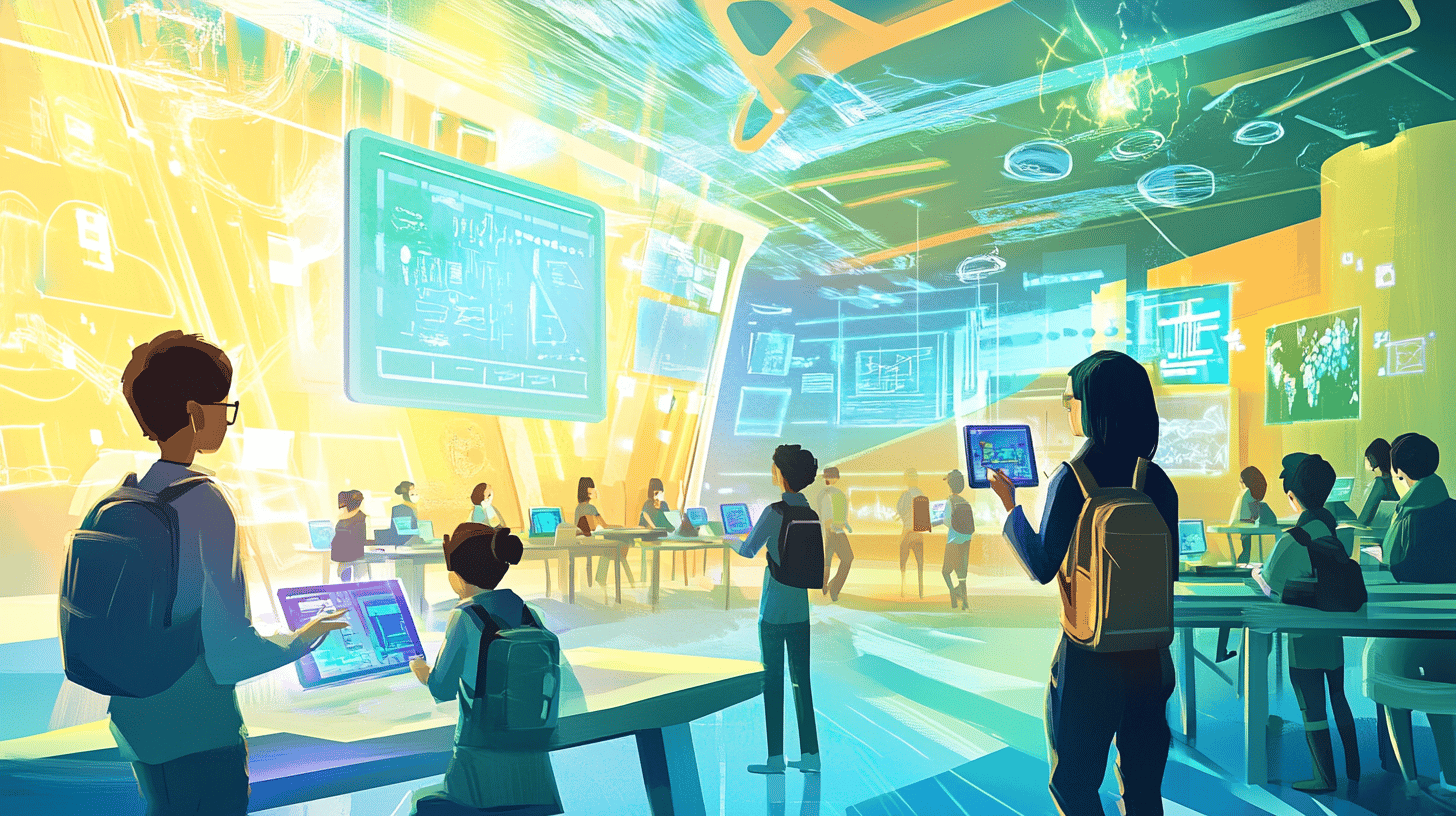Education and learning are constantly changing, driven by technological innovations, new methodologies, and the growing search for a more efficient way to acquire knowledge. In a world where information is at our fingertips, developing effective strategies for learning becomes essential. In this article, we will explore 15 new approaches that will not only enrich your learning experience, but also enhance your performance in any field of study.
1. Integrate Educational Technologies
Technology plays a crucial role in education today. Learning apps, online platforms, and time management tools can make all the difference. Learning how to use resources like Google Classroom, Khan Academy, and Quizlet can help you optimize your learning.
2. Adopt Project-Based Learning
Project-based learning (PBL) is an approach that involves exploring a real-world problem or challenge. This methodology encourages students to actively engage with the content, fostering the development of practical and collaborative skills that are essential in the workplace.
3. Establish a Productive Study Environment
An inadequate study space can affect your concentration and productivity. Setting up a space with good lighting, fewer distractions, and everything you need at hand can help create a space that is conducive to learning.
4. Participate in Online Study Groups
Interacting with other students can enrich your understanding of the material. Online study groups allow for in-depth discussions and the exchange of different perspectives, which can result in more meaningful learning.
5. Incorporate Gamification into Learning
Gamification is the use of game elements in non-game contexts. Platforms that use this strategy make learning more engaging and motivating. Consider using apps that score your achievements or create healthy competitions between peers.
6. Practice the Pomodoro Technique
The Pomodoro Technique is a time management methodology. It consists of studying for 25 minutes, followed by a 5-minute break. After four cycles, take a longer break. This technique helps maintain concentration and prevents burnout.
7. Balancing Theoretical and Practical Study
Combining theory with practice is essential for a deeper understanding. Whenever possible, look for opportunities to apply what you learn in real-world situations, whether through internships, volunteer work or personal projects.
8. Focus on Social-Emotional Skills
In addition to academic skills, social-emotional skills are essential for success. Developing skills such as self-control, resilience, and empathy can significantly improve your ability to learn and work as a team.
9. Use Multimedia Resources
Including videos, podcasts, and infographics in your learning process can make it easier to absorb complex information. Everyone learns differently, and multimedia resources can help cater to different learning styles.
10. Set SMART Learning Goals
Setting goals that are specific, measurable, achievable, relevant, and time-bound (SMART) can help you stay focused and motivated. Instead of just saying you want to learn more about a topic, set clear, realistic goals, such as “read a book on the topic by the end of the month.”
11. Encourage Critical Reflection
Reflecting on what you are learning is crucial to reinforcing your knowledge. Try creating summaries or study journals where you can record your conclusions, questions and insights about the content studied.
12. Experiment with Different Learning Styles
Discover your learning style and explore others. Learning through visual, auditory, or kinesthetic techniques can improve your performance. The important thing is to find what works best for you and diversify your approaches.
13. Explore Online Courses and Certifications
Online education offers a plethora of courses and certifications in a variety of fields. Platforms like Coursera, Udemy, and edX provide flexible learning opportunities that can be tailored to your pace and interests.
14. Promote Continuous Self-Learning
Becoming an independent learner is crucial to your long-term success. Always seek to learn on your own, using books, articles, videos, and other resources. This not only expands your knowledge, but also prepares you for a future of continuing education.
15. Cultivate Curiosity and a Love of Learning
Last but not least, cultivate a positive attitude towards learning. Curiosity and a passion for acquiring new knowledge will make the process more enjoyable and less arduous. Learning can be fun, and this mindset can take you far in your educational journey.
Conclusion
Learning in 2025 and beyond requires innovation, adaptation, and a proactive approach. By implementing these 15 strategies, you can not only maximize your learning potential but also transform your educational experience into something more rewarding and effective. Try integrating some of these practices into your routine and feel the difference in the way you learn and develop. Don’t forget to share your experiences and tips in the comments below! Let’s go on this journey of continuous learning together!



